India's transgender sari models winning hearts
- Published
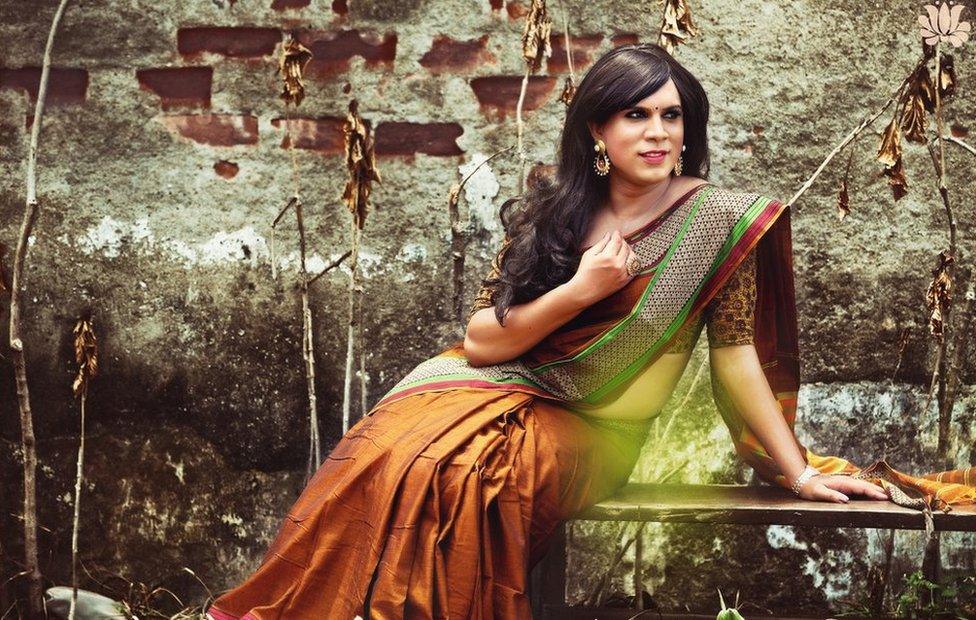
In a highly unusual move, a designer in the southern Indian state of Kerala has launched her new collection of saris, featuring two transgender models, writes the BBC's Geeta Pandey in Delhi.
Sharmila Nair's collection is called Mazhavil - or, the rainbow - and it's "dedicated to transgender people because globally they are represented by rainbow flags".
In India, where transgender people are looked down upon by the larger society and are considered as the in-between people who are to be ridiculed and shunned, Ms Nair's choice of models is attracting a lot of attention.
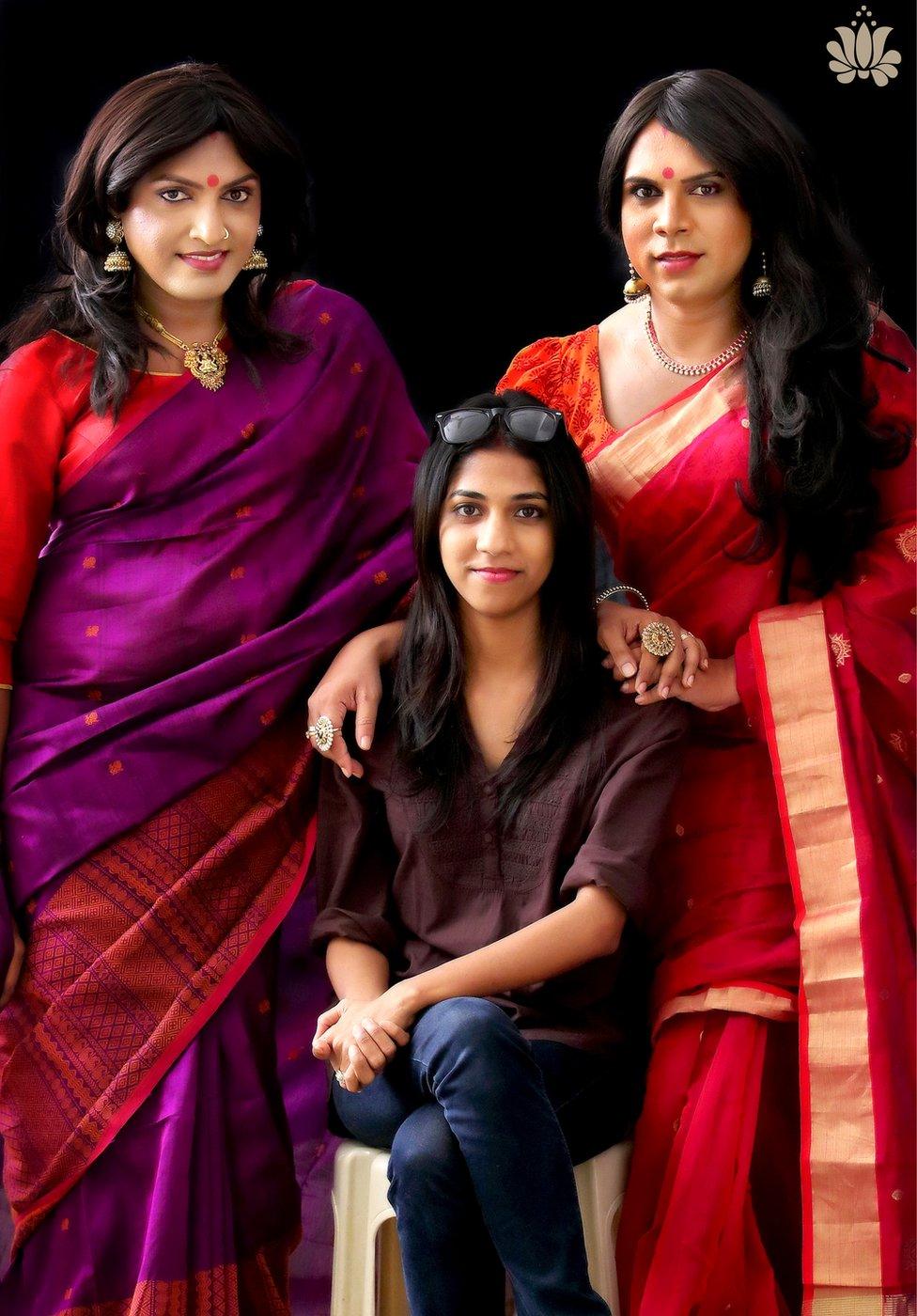
The models - Maya Menon and Gowri Savitri - have no previous experience in modelling and Ms Nair says she found them through Queerala, external, an organisation that works with the LGBT (lesbians, gays, bisexual and transgender) people in Kerala.
"I was thinking about how I was going to showcase this collection of handloom saris and I saw a Facebook post about the state government's new policy to better the lives of transgender people, external.
"I thought since the government was doing so much for the LGBT people, I should also do something," Ms Nair told the BBC on phone from Cochin.
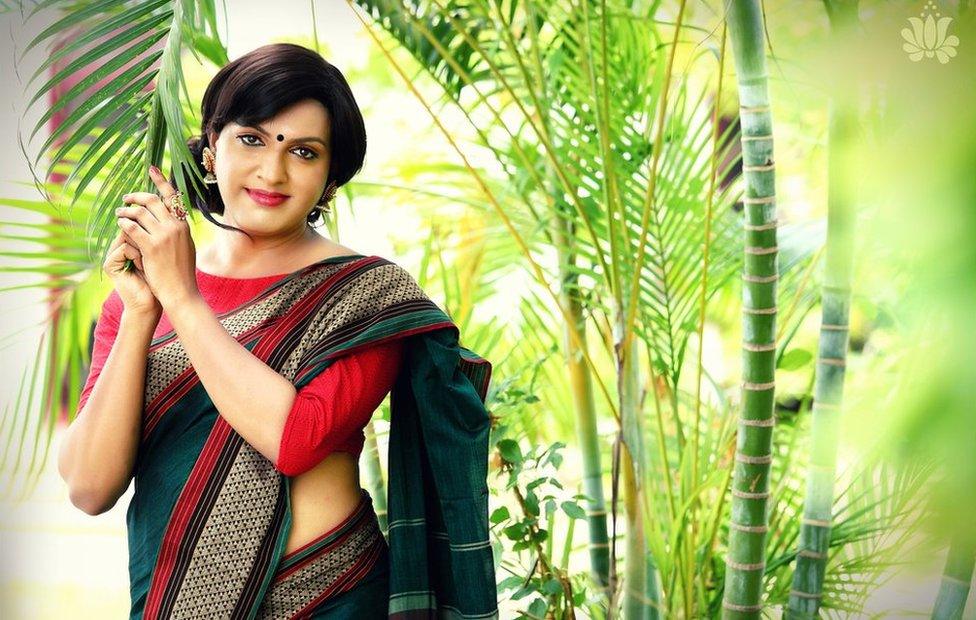
Ms Nair, who never uses professional models in her campaigns, says she had two criteria for selecting the models for her latest campaign.
"We were just looking for models who love wearing saris and who would be comfortable in front of the camera. We didn't want them posing too much."
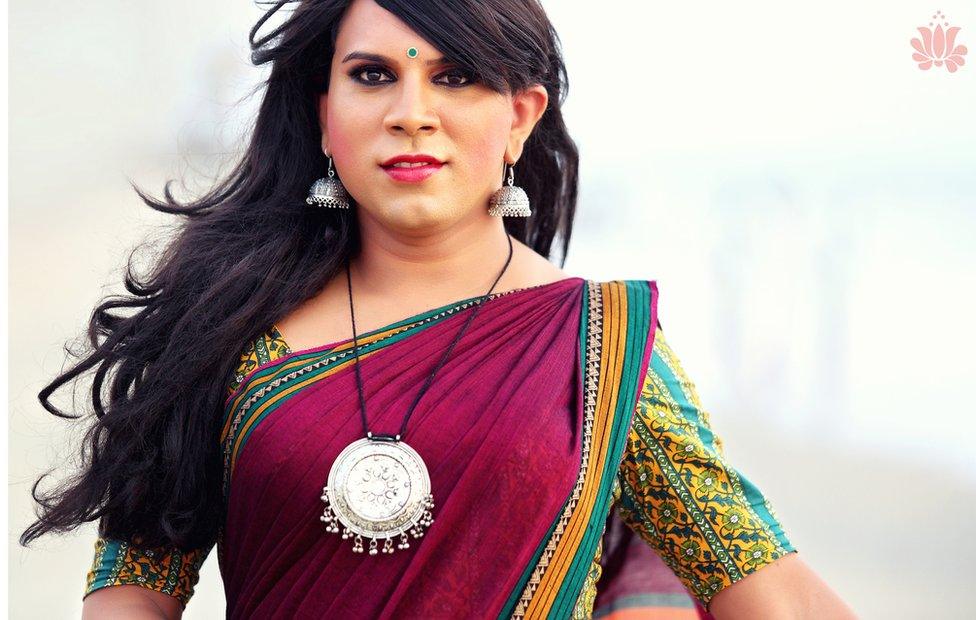
Both Maya and Gowri are "transgender women, trapped in male bodies", says Ms Nair.
The designer says she had been sent their photographs in saris, but when she met them they were dressed as men, in shirts and trousers.
"When we dressed them up in our saris for the campaign, they were totally transformed. They looked so gorgeous," she says.
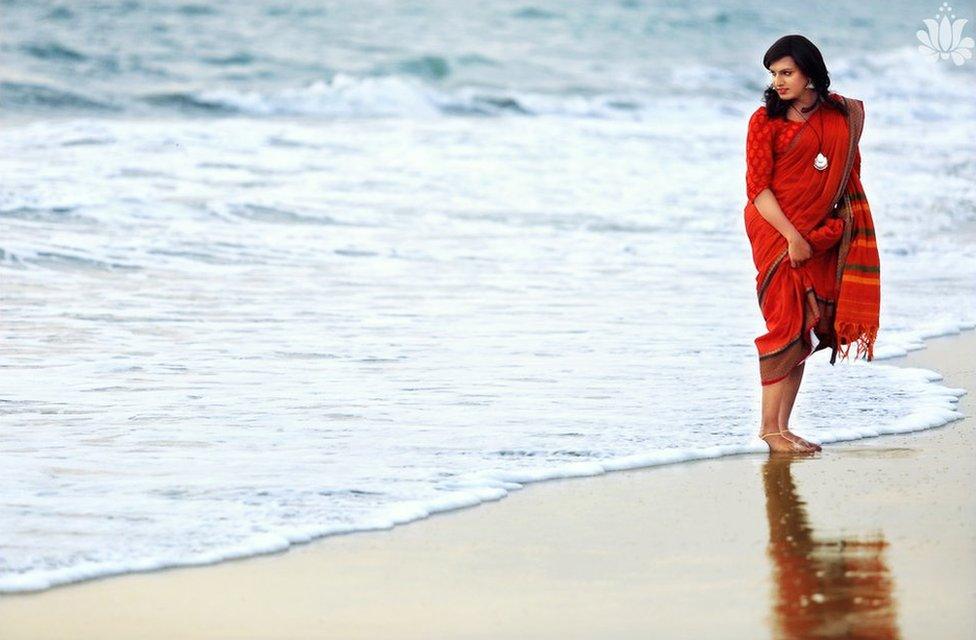
Ms Nair, 25, is selling the saris under her label Red Lotus, external which she launched seven months ago.
"My husband is from Kerala but he lived in Tamil Nadu for a long time. It was from his family that I heard about this Tamil myth that the fibre from the red lotus flower was used to weave clothes for gods and goddesses. So I named my company after the flower," she says.
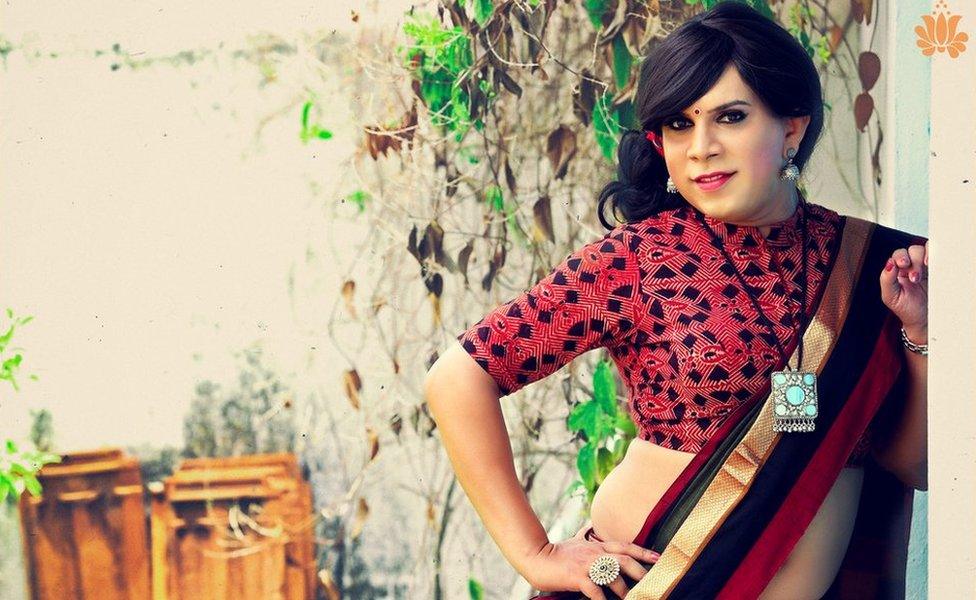
The collection of brightly coloured saris and the stunning models have won rave reviews and the Kochi-based designer says that purchase orders have been pouring in from India and abroad.
Made by weavers in a small village in Hubli district in the neighbouring state of Karnataka, the saris are priced between 1,500 rupees ($23; £16) and 2,500 rupees ($38; £26).
"In the past two weeks, we've already sold more than 100 saris. Besides people in India, we've received lots of orders from Britain, Singapore, Australia and the US," Ms Nair says.
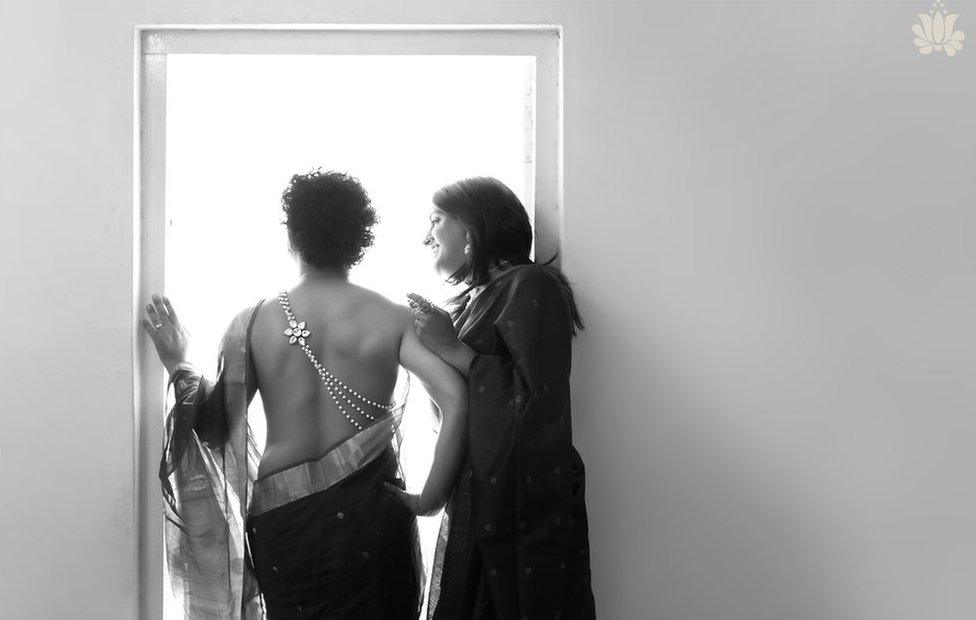
However, the choice of transgender models hasn't gone down well with some who say the designer is "using cross-dressers as models to gain publicity".
In a country where the transgender community remains socially excluded, living on the fringes of society, with members make a living by singing and dancing at weddings or child births or begging and prostitution, Ms Nair defends her choice.
The models, both 29, are college graduates, but they are unemployed because they are transgender, she says.
This assignment has brought them visibility and the designer says she hopes that it will also bring them acceptability so that they can get employment.